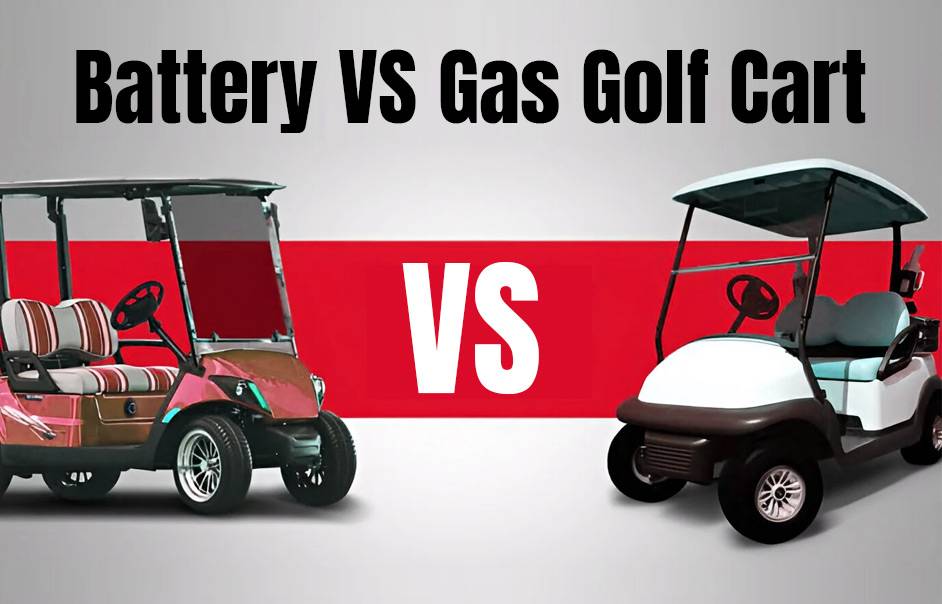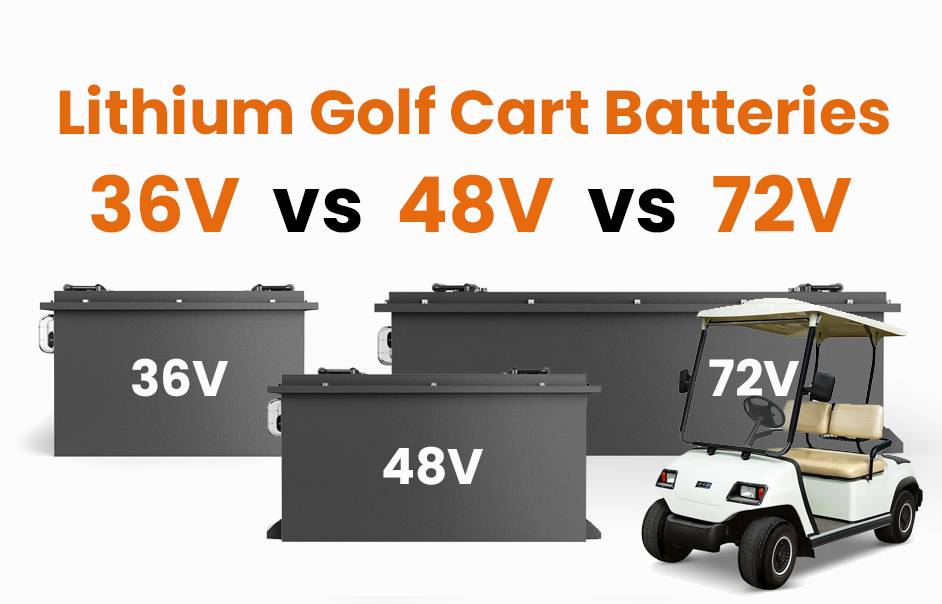
Blog
How Do Battery-Powered Golf Carts Compare to Gas-Powered Golf Carts?

Battery-powered golf carts offer quieter, cleaner, and lower-cost operation suited for short-range use, while gas-powered golf carts provide greater power, longer range, and faster refueling for rugged terrain and heavy tasks.
What Are the Main Differences Between Battery-Powered and Gas-Powered Golf Carts?
Battery-powered golf carts run on electric motors powered by rechargeable batteries, producing zero emissions and low noise. Gas-powered carts use internal combustion engines fueled by gasoline, offering higher power and longer range but generating noise and exhaust. Battery carts require charging time; gas carts need quick refueling. Maintenance for electric models is generally simpler and cheaper.
Electric carts excel in quiet environments or eco-conscious settings, whereas gas carts excel on rough terrain or distant locations without access to electricity.
How Do Maintenance and Operating Costs Compare for These Golf Carts?
Electric golf carts have fewer moving parts, requiring minimal maintenance aside from battery upkeep like water level checks on lead-acid types or periodic monitoring for lithium batteries. Their operating costs are lower since electricity is cheaper than gasoline and no oil changes are needed.
Gas-powered carts demand frequent oil changes, engine tune-ups, and filter replacements, increasing maintenance costs. Fuel costs add up, and engine wear can lead to costly repairs. Over time, electric carts often have a lower total cost of ownership despite higher initial prices.
Which Golf Cart Offers Better Performance and Range?
Gas-powered carts typically offer more raw power, better torque for hauling loads, and longer range—up to 120+ miles per tank—making them ideal for rugged or large properties. Refueling takes minutes.
Battery-powered carts provide instant torque with smooth acceleration and newer lithium batteries have improved their range to 30–50 miles per charge. However, charging can take several hours, limiting continuous use.
| Aspect | Battery-Powered Golf Cart | Gas-Powered Golf Cart |
|---|---|---|
| Noise | Virtually silent | Loud and noisy |
| Emissions | Zero emissions | Exhaust fumes |
| Maintenance | Low, battery upkeep only | Higher, engine servicing needed |
| Range | 30–50 miles per charge | 120+ miles per tank |
| Refueling Time | Several hours for charging | Few minutes for refueling |
| Initial Cost | Often higher | Sometimes lower |
| Operating Cost | Lower electricity cost | Higher fuel and maintenance |
Why Are Battery-Powered Golf Carts Considered More Environmentally Friendly?
Electric golf carts produce zero tailpipe emissions, eliminating air pollution and reducing noise pollution—an essential factor for residential communities, golf courses, and hunting areas. Using rechargeable lithium battery technology reduces environmental impact by offering energy-efficient, clean operation. In contrast, gas-powered carts emit carbon dioxide and other pollutants, contributing to air quality degradation.
Who Should Choose Battery-Powered Golf Carts Over Gas Models?
Users prioritizing quiet, eco-friendly operation with low upkeep will benefit from battery-powered golf carts. These are perfect for golf courses, residential areas, resorts, and recreational environments where noise and emissions restrictions exist. Businesses requiring cost-effective, reliable electric models can turn to manufacturers like Redway Power in China, which supplies lithium battery packs designed for durable, high-performance electric vehicles.
When Is It Best to Opt for Gas-Powered Golf Carts?
Gas-powered golf carts are ideal for large properties, construction sites, farms, or remote areas lacking easy access to electricity. Their superior power and faster refueling make them suitable for heavy hauling, hilly terrain, or extended use. When operational range and quick turnaround time matter most, gas carts outperform electric models.
Where Can Buyers Find Reliable Battery-Powered Golf Cart Components?
China is a leading supplier of lithium battery packs for electric golf carts, with factories like Redway Power specializing in OEM and wholesale lithium solutions. Redway Power’s advanced LiFePO4 batteries provide longer life, faster charging, and stable output, making them trusted by global clients seeking quality energy systems for electric carts, forklifts, and other vehicles.
Does Using Lithium Batteries Improve Electric Golf Cart Efficiency?
Yes, lithium batteries significantly improve electric golf cart efficiency by offering higher energy density, lighter weight, and longer cycle life compared to traditional lead-acid batteries. Lithium packs from manufacturers like Redway Power enable quicker charging times and consistent performance, reducing downtime and enhancing user experience with more reliable power delivery.
Can OEM Golf Cart Batteries from China Offer Advantages for Manufacturers?
OEM lithium batteries from Chinese factories such as Redway Power offer several advantages including competitive pricing, customization options, and stringent quality control certified by ISO 9001:2015 standards. These batteries are engineered for various applications, supporting B2B factory requirements and wholesale orders globally. Leveraging Chinese OEM suppliers streamlines production and ensures cutting-edge battery technology integration.
Redway Power Views
“From our vantage point as a leading lithium battery manufacturer, the shift toward electric golf carts is driven by evolving environmental regulations and customer demand for lower lifecycle costs and quieter operations. At Redway Power, we emphasize quality and innovation, producing battery systems that not only enhance performance but also extend operational range. Our OEM partnerships empower factories worldwide to deliver efficient, sustainable electric mobility solutions tailored for diverse industries.” — Redway Power Expert
Conclusion
Choosing between battery-powered and gas-powered golf carts depends on your operational priorities. Battery carts from manufacturers like Redway Power excel in quiet, eco-friendly environments with lower maintenance and operating costs but require charging infrastructure and have limited range. Gas-powered carts deliver greater power, fast refueling, and long distances, suited for rugged terrain and heavy-duty tasks but entail higher emissions and maintenance. Understanding these trade-offs ensures informed decisions for businesses sourcing golf cart fleets or OEM components.
FAQs
Q1: How long does it take to charge a battery-powered golf cart?
Charging times typically range from 4 to 8 hours depending on battery capacity and charger type.
Q2: Are lithium batteries better than lead-acid for golf carts?
Yes, lithium batteries offer longer life, lighter weight, faster charging, and more consistent power.
Q3: Can gas-powered golf carts be converted to electric?
Conversions are possible but costly and may not match factory-built electric cart efficiency.
Q4: What maintenance is required for electric golf cart batteries?
Routine checks include water levels for lead-acid and ensuring proper charging cycles for lithium batteries.
Q5: How do environmental concerns influence golf cart choice?
Battery-powered carts produce no emissions, making them preferred in sensitive areas over gas models.




